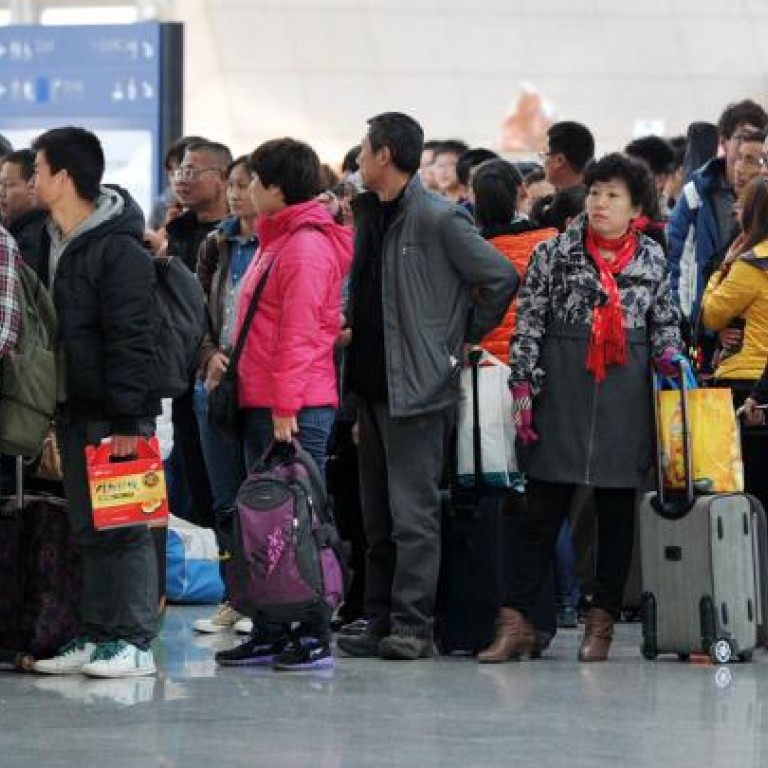
Migrant workers feel like outsiders in mainland cities, says survey
Many workers who flock to mainland cities feel alienated and have low self-esteem, says survey
Despite spending years working in mainland cities, migrant workers still feel like outsiders and say their only sense of happiness comes from their families, a Renmin University survey has found.
They also see themselves as the bottom of society and feel alienated because they have no influence on their lives or society in general, the survey found, with young migrant workers even gloomier about their prospects.
The findings underscore the challenge facing the new administration in realising premier-in-waiting Li Keqiang's high-profile commitment to people-oriented urbanisation.
The survey of 2,011 migrant workers, conducted in 20 major cities, found their sense of happiness came mainly from the satisfaction of their basic needs, such as income and education, how close they were to home and how often they could see their children.
Most said they felt that their social standing was very low and they were less happy than those who thought more highly of themselves. More than half of those with low opinions of themselves felt lonely, bored and incapable of having an impact on their lives or society.
The survey also found that migrant workers were not necessarily happier in more economically developed cities, with those in central and western regions where competition was less fierce generally more content.
Professor Hu Ping , from Renmin University's psychology department, which conducted the survey, said the government should pay more attention to the well-being of migrant workers.
"Not just their basic living requirements and food but also their social needs such as being recognised, accepted and respected by society," Hu said. "Their needs to participate in social life should also be met."
Compared with a similar survey last year, migrant workers' living standards had improved but their sense of happiness from social involvement and social standing had dipped.
Wang Junxiu , a researcher with the Chinese Academy of Social Science, said the survey showed that the sense of happiness of migrant workers was not entirely based on how much money they made but also how they felt about the future.
"The core of urbanisation is how to make these migrant workers urban residents and from the survey we see the migrant workers are not … wanting different levels of needs one by one," Wang said. "Instead, they need to fulfil their needs at the same time and the government should do more to make them integrate into society."
Hu said the government should be alert to the class awareness of migrant workers and work out strategies to effectively resolve conflicts among different social strata to avoid conflict.
Professor Ye Yumin , from Renmin University's school of public administration and policy, said urbanisation should mean not only that people could move from place to place but also allow them to move up the social ladder. "Otherwise it is not successful," she said.
Ye said it was the government's job to create a fair channel for migrant workers to move up and the most effective way was through education.

